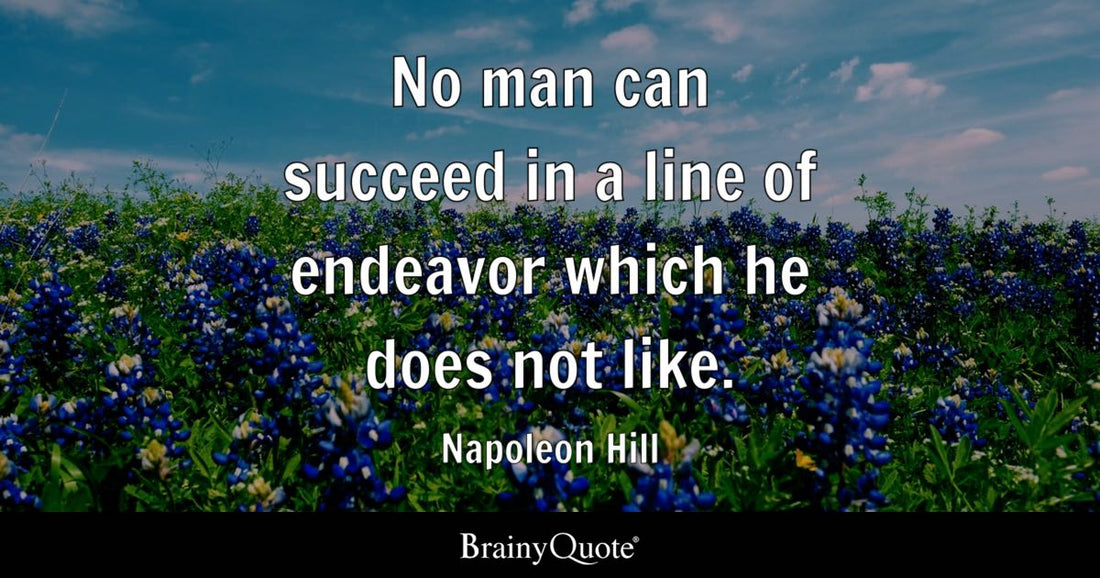Napoleon Hill, renowned for his seminal work "Think and Grow Rich," distilled many truths about success and personal fulfillment. Among these is a profound statement: "No man can succeed in a line of endeavor which he does not like." This assertion underscores the intrinsic connection between passion and success, suggesting that genuine enthusiasm for one's work is indispensable for achieving true accomplishment.
Passion is the driving force that fuels perseverance and creativity. It is the spark that ignites motivation and propels individuals through challenges and setbacks. When someone is passionate about their work, they are more likely to invest the time and effort required to excel. This enthusiasm translates into a deeper engagement with the task at hand, often leading to innovation and excellence.
Passion also fosters resilience. The journey to success is rarely smooth, and setbacks are inevitable. However, when one is deeply invested in their line of work, these obstacles are seen not as insurmountable barriers but as challenges to be overcome. Passion provides the emotional energy to persist, adapt, and ultimately thrive in the face of adversity.
Conversely, a lack of passion can lead to disengagement and mediocrity. When someone pursues a career or endeavor they do not enjoy, their motivation wanes. The work becomes a mere obligation, and they are likely to do the bare minimum required to get by. This lack of enthusiasm can lead to burnout, dissatisfaction, and a lack of fulfillment.
Moreover, without a genuine interest in their work, individuals are less likely to seek out new knowledge or skills that could enhance their performance. They miss opportunities for growth and improvement, resulting in stagnation. This disengagement not only affects the individual but can also impact the organization they are part of, leading to reduced productivity and innovation.
Identifying a line of endeavor that one truly enjoys is a critical step toward achieving success. This involves self-reflection and a willingness to explore different interests and activities. It requires an honest assessment of what brings joy and fulfillment. Sometimes, this may mean stepping out of one’s comfort zone or making significant changes to one's career path.
Once a passion is identified, it is essential to nurture it. This can be done by setting challenging goals, seeking out new experiences, and continually learning. Surrounding oneself with like-minded individuals who share the same enthusiasm can also provide support and inspiration.
While passion is crucial, it must be balanced with practicality. Pursuing a passion without considering its viability can lead to financial instability and stress. Therefore, it is important to find ways to align one’s interests with market demands and opportunities. This might involve acquiring additional skills or finding niche areas where one's passion can be monetized.
Napoleon Hill's assertion that "no man can succeed in a line of endeavor which he does not like" highlights the essential role of passion in achieving success. Passion fuels motivation, fosters resilience, and drives individuals to excel. Without it, disengagement and mediocrity are inevitable. Therefore, finding and cultivating one's passion is not just a path to personal fulfillment but also a cornerstone of true success.
By aligning our work with our interests and continually nurturing our passion, we can overcome challenges and achieve excellence in our chosen endeavors. This alignment between passion and profession is the key to unlocking our full potential and leading a fulfilling, successful life.






